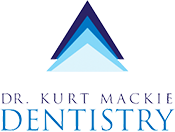Winter brings shorter days, colder weather, and for some, a dip in mood. Seasonal Affective Disorder (SAD), a form of depression linked to seasonal changes, affects many people this time of year. To manage SAD or other forms of depression, medications like antidepressants are often prescribed. While these treatments are vital for mental health, they can have unexpected side effects, including dry mouth, which can impact your oral health.
What Causes Dry Mouth?
Dry mouth happens when your salivary glands don’t produce enough saliva. This might not seem like a big deal, but saliva plays a crucial role in keeping your mouth healthy by:
- Protecting teeth from decay
- Preventing gum disease by reducing plaque buildup
- Aiding in digestion and swallowing
- Maintaining fresh breath
Without enough saliva, your mouth can feel dry and uncomfortable, and your oral health can suffer.
The Connection Between Antidepressants and Dry Mouth
Many antidepressants, including those commonly used to treat SAD, can reduce saliva production and cause dry mouth. This side effect is particularly common with:
- SSRIs (Selective Serotonin Reuptake Inhibitors)
-
- Including Paxil, Celexa, and Zoloft.
- SNRIs (Serotonin-Norepinephrine Reuptake Inhibitors)
-
- Including Effexor and Cymbalta.
- Tricyclic Antidepressants
-
- Including Nortriptyline and Amitriptyline.
These medications work by altering brain chemistry to improve mood but can inadvertently affect the nervous system’s ability to regulate saliva production.
Why Dry Mouth Shouldn’t Be Ignored
While dry mouth might seem like a minor annoyance, it can lead to more significant oral health problems if left untreated. Here’s how:
- Tooth Decay
Saliva helps wash away food particles and neutralize acids. Without it, your risk of cavities increases.
- Gum Disease
Dry mouth promotes plaque buildup along the gumline, which can lead to inflammation and infection.
- Oral Infections
A dry environment makes it easier for harmful bacteria and fungi to grow, increasing your risk of infections like oral thrush.
- Persistent Bad Breath
Without saliva to rinse away bacteria, bad breath can become a recurring problem.
Addressing dry mouth early is essential to avoid these complications.
5 Ways to Help Dry Mouth
If you’re experiencing dry mouth due to depression medications, don’t worry – there are several steps you can take to relieve symptoms and protect your oral health.
- Stay Hydrated
- Drink water regularly throughout the day and limit dehydrating beverages like coffee, tea, and alcohol.
- Use Saliva Substitutes
- Over-the-counter saliva substitutes and mouth sprays specifically designed for dry mouth relief can help keep your mouth moist.
- Stimulate Saliva Production
- Chew sugar-free gum or suck on sugar-free lozenges, ideally containing xylitol, to encourage saliva flow.
- Keep Up with Your Oral Hygiene
- Brush at least twice a day with a fluoride toothpaste to strengthen your enamel and floss daily to remove plaque from between your teeth.
- Schedule Regular Dental Visits
- Routine check-ups with your dentist in Boerne help catch early signs of decay or gum disease. They can also recommend fluoride treatments or other solutions.
If dry mouth is a significant problem, your healthcare provider may adjust your medication or suggest alternatives. Don’t change or stop taking your medication without consulting your physician.
Managing your mental health is a priority, especially during the winter months when Seasonal Affective Disorder can take a toll. However, it’s equally important to pay attention to your oral health. Dry mouth caused by antidepressants can be managed with the right strategies, helping you maintain a healthy, confident smile.
At our Boerne dental office, we’re here to support your oral health year-round. If you’re dealing with dry mouth or any other dental concerns, schedule an appointment today. We’ll work with you to create a personalized plan to keep your mouth healthy and comfortable through every season.


